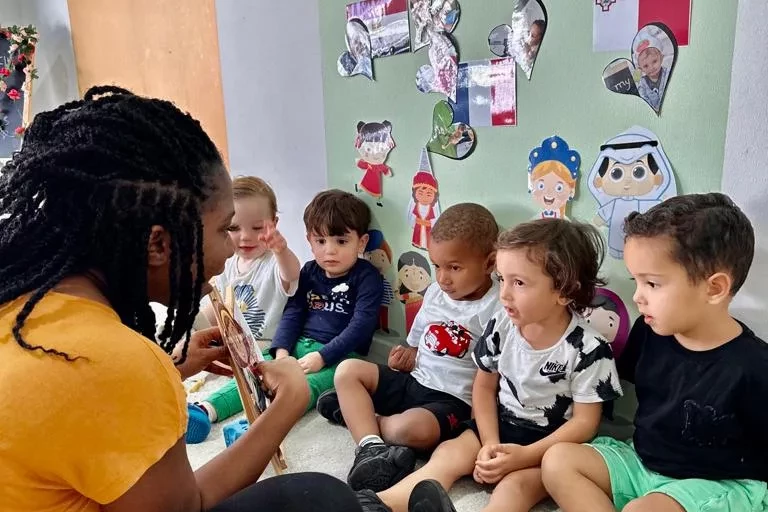How Miles of Smiles Nursery Dubai encourages and practices cultural diversity
-
March 13, 2023
-
By: admin
-
1017
Miles of Smiles uses several ways to practice and encourage cultural diversity such as cultural events, snacks, food, dance, and music encouraging differences creating a welcoming environment and discouraging discrimination. At Miles of Smiles, there is an allocated theme for children across all age groups to teach them around the world.
Dubai is among the 10 most multicultural countries in the world. It is considered the most multicultural city with people speaking over three hundred languages. At Miles of Smiles, there are many nationalities varying from staff to students, so there are many cultures. Culture encompasses language, art, religion, way of communication, traditions, food, music, dance, beliefs, and others… Miles of Smiles Nursery Dubai encourages and practices cultural diversity. The cultural inclusion at Miles of Smiles offers a lot of benefits for children’s development across all areas especially in understanding the world.
The key benefits of cultural inclusion in Miles of Smiles are cultural competence, communication, and understanding, a sense of belonging, self-concept, and confidence. Talking about cultural competence is the ability to respect, understand and communicate with people from different nationalities, cultures, and beliefs. Cultural diversity activities are done in the nursery to help the child to develop cultural competencies. Establishing cultural competence in the early years is crucial and beneficial as you are developing the child personally, socially and emotionally for adulthood. Cultural inclusion enhances communication and understanding by building a strong relationship when accepting and respecting differences and finding common grounds. Cultural inclusion can play a greater role in growing and strengthening relationships with people in the nursery and it influences in a positive way the family units by improving communication and interactions. Cultural diversity experience in a nursery can highly affect the feeling of security and safety for children.
Children start to build a self-concept based on how others might perceive them. They are in need of honouring their culture to create a positive impact. If the environment in which they are spending most of their time is not validating their culture, they will feel unimportant even though it is their identity. Supporting cultural diversity requires respect for all cultures and backgrounds. In the nursery, teachers encourage the acceptance of differences so children will definitely feel that they belong to the community. Confidence is the key benefit of cultural diversity in a childcare centre since when children are taught to respect other cultures and backgrounds they will feel confident when meeting others.
Miles of Smiles uses several ways to practice and encourage cultural diversity such as cultural events, snacks, food, dance, and music encouraging differences creating a welcoming environment and discouraging discrimination. At Miles of Smiles, there is an allocated theme for children across all age groups to teach them around the world. Miles of smiles celebrates many cultural events throughout the academic year for example Diwali, national days, festivals… Throughout cultural events such as International Day, the nursery will have the opportunity to focus on different cultures and promote acceptance. Food is considered the most important cultural trait. At Miles of Smiles, teachers are teaching children about different cuisines. In nursery classrooms, teachers always try to put rhymes in different languages in order to present the class. They try to implement the same music with different versions in order to please the whole class. At Miles of Smiles, the staff encourages differences and eliminates discrimination. Children are curious and teachers should be ready to answer any question and put effort to make them understand cultural diversity. Teachers at Miles of Smiles act without discrimination, they are role models so children will learn the respect of others.
When parents are looking for a nursery for their children, they should look for educators who will do their best to let the child adapts and feel accepted. They should look at how the staff is treating each other and how they interact in a respectful way with high equality and equity standards.

Leave a comment
You must be logged in to post a comment.